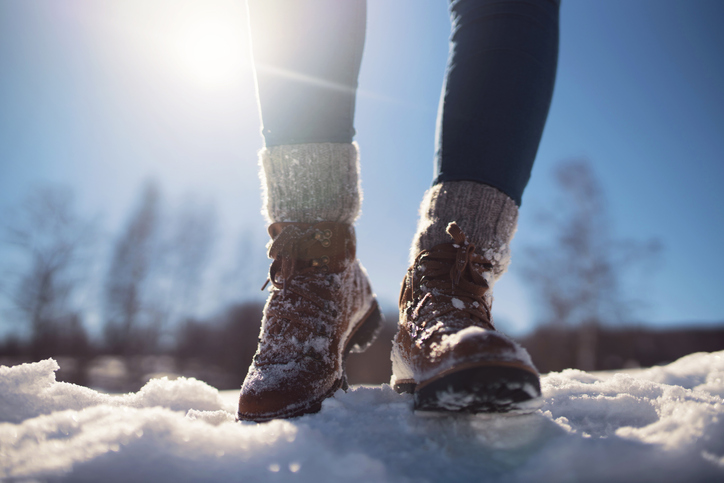Living with Chronic Pain
Winter Safety Tips

Beautiful snowfall, fun outdoor activities, and seasonal gatherings with family and friends are often part of the winter season. However, winter weather also poses various safety challenges.
Here are some tips to stay safe this winter season:
Hypothermia and frostbite prevention
Hypothermia or frostbite can occur when spending time outdoors in cold temperatures. Here are some tips to prevent hypothermia and frostbite:
- Dress in layers. Wearing layers is an effective way to prevent hypothermia.
- If clothing or boots become wet, change them immediately.
- Wear a hat.
- Wear gloves and keep the ears covered at all times to help prevent frostbite.
- Take frequent breaks indoors to get warm. Drink warm beverages but avoid caffeine and alcohol.
Indoor heating safety
Heating equipment can cause house fires during the winter months. Certain heating equipment can also lead to carbon monoxide poisoning. Here are some tips to heat the home safely:
- Use electric space heaters rather than kerosene or other chemical heaters.
- Turn off space heaters when leaving the room and at night.
- Ensure that the space heater has an automatic shut off if it overheats or is knocked or tipped over.
- Make sure space heaters are at least three feet away from anything that can burn. Keep pets and children away from space heaters.
- Have working smoke and carbon monoxide detectors in the home. Be sure to test the detectors and change the batteries regularly.
- Inspect and clean fireplaces and chimneys regularly.
Injury prevention
Snow and ice are slippery and can lead to falls that cause injuries. Here are some tips to avoid injury:
- Sprinkle salt, sand, or cat litter on icy patches.
- Wear footwear with good rubber treads.
- When walking on snow or ice, take short steps and walk slowly.
- Carry a cell phone that can be used to call for help in case of a fall.
Snow removal safety
Shoveling snow and snow blowing are known triggers for heart attacks and back pain. The combination of cold weather and the manual labor required to move heavy snow can put a big strain on the heart. Here are some tips to safely remove snow:
- Warm up the muscles before heading outside.
- When shoveling, shovel lighter loads rather than heavy ones.
- Take frequent breaks and stay hydrated.
- If possible, hire a snow removal company or neighborhood teenager to keep the driveway and sidewalks clear.
- For more snow-shoveling safety tips check out this article.
Safe travel
Ice and snow on the roads create dangerous driving conditions. Car trouble in extremely cold temperatures can also be dangerous. Here are some tips for safe travel during the winter season:
- Keep vehicles well-maintained. Maintain levels of antifreeze, and keep gas tanks full. Check tire tread, and replace tires if needed.
- Keep a winter emergency kit in the car. This should include a cell phone charger, blankets, food and water, flares, a bag of sand or cat litter, a shovel, and jumper cables.
- Be aware of current and forecasted weather conditions before traveling. Avoid traveling when weather advisories are in place.
- If driving on snowy or icy days is necessary, cut speed in half and double the following distance from other vehicles.


















